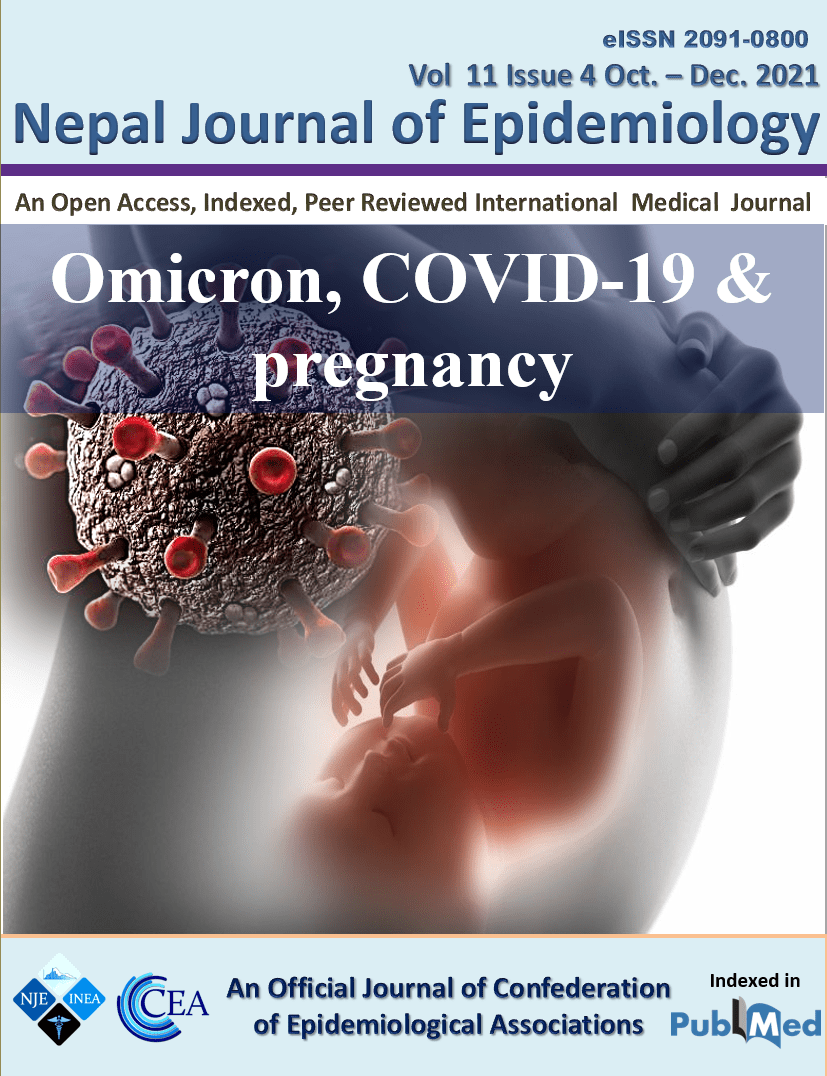Omicron: The pandemic propagator and lockdown instigator – what can be learnt from South Africa and such discoveries in future
DOI:
https://doi.org/10.3126/nje.v11i4.41569Keywords:
COVID-19 Virus variants, omicron SARS-CoV-2 variant, SARS-CoV-2, SARS-CoV-2 omicron variantAbstract
The SARS-CoV-2 virus which causes the disease termed COVID-19 ripped through the globe in the latter part of 2019 and has left a state of fear, death and destruction in its wake. The Omicron variant was officially announced by the South African authorities on the 24th of November 2021, with the first confirmed sample of the infection being collected on the 9th of November 2021. The initial cases were flagged as a possible new variant due to the stark differences in the presentation and clinical features of the patients. At the time of Omicron’s discovery, the predominant variant circulating within South Africa was the Delta variant B.1.617.2 which typically presented with more severe and stark symptoms.
Omicron spread rapidly within the Southern African content and abroad, principally South Africa, Botswana, Hongkong and Israel were among the first countries to record cases of the new variant. The first European case of the Omicron variant was confirmed on the 26th of November 2021 in Belgium. Towards the end of November 2021 cases of the new variant had been confirmed and recorded in France, the United Kingdom, Germany, Portugal and Scotland. Additional cases of the Omicron variant have been confirmed in Canada and Australia.
At this current point in the development of the Omicron upsurge in cases the international community should aim for further vaccinations among their fellow countrymen, but more so vaccine equality should be ensured. Such equality should be ensured in the developing nations as the virus does not respect any boundaries or territories and thus a higher level of vaccination worldwide will confer greater protection to the global community as a whole.
Downloads
Downloads
Published
How to Cite
Issue
Section
License
Copyright (c) 2021 CEA & INEA

This work is licensed under a Creative Commons Attribution 4.0 International License.
- Upon acceptance Copyright on any research article is transferred in full to the Confederation of Epidemiological Associations (CEA) and International Nepal Epidemiological Association (INEA). The copyright transfer includes the right to reproduce and distribute the article in any form of reproduction (printing, electronic media or any other form).
- Articles in the Nepal Journal of Epidemiology are Open Access articles published under the Creative Commons CC BY License (https://creativecommons.org/licenses/by/4.0/)
- This license permits use, distribution and reproduction in any medium, provided the original work is properly cited.




